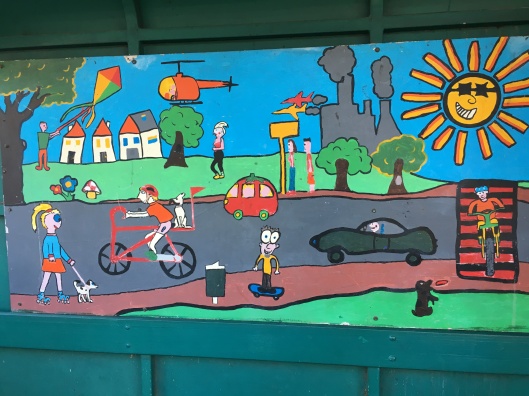From Claire Aitchison, Susan Carter and Cally Guerin
After 11 years of working together on this wonderful blog about doctoral writing we realise that the time is right to reimagine our roles and the operation of the site. From June 2023 the DoctoralWriting blog will move from being a place of regular blog-posting to become a repository of resources. This means we will cease putting up new posts; however, the Doctoral Writing Discussions hosted from this site will continue, as will the rich array of resources we invite you to mine.
We have just under 400 blogs on all things to do with doctoral writing – and these live on here available as a public resource for researcher educators, doctoral supervisors, and research candidates to access. While the DoctoralWriting blog chronicles our own personal and professional relationships with research writing and doctoral writing, it has also become a library of critical reflections on what writing is, and how it is done, within the context of doctoral studies. The posts include our own writing plus contributions from many guest authors featuring well-known scholars, as well as local practitioners and doctoral students. All our blogs are a mixture of sage practical advice and actionable reflections on writing scholarship and practice.
Those who host workshops for doctoral writers will find great teaching suggestions; doctoral writers themselves can find inspiration and sensible advice; and supervisors can use and direct students to these posts.
Accessing the resources
There are two ways to search for particular topics or simply to browse the resources:
- Use the search function on the top right-hand side of the blog,
- Use the ‘Categories’ headers on the right-hand menu to pull up blogs themed under these headings:
- The Thesis/Dissertation
- Grammar/Voice/Style
- Writing Practices
- Publication
- Identity & Emotion
- Community Reports
In addition, in 2020 we curated our blogs into a book, Doctoral Writing: Practices, Processes and Pleasures. Please ask your library to hold a copy or access it yourself.
Doctoral Writing communities
While we will no longer be posting blogs on this site, we do encourage you to continue to engage with the active community of scholars led by Drs Juliet Lum and Susan Mowbray who will continue to host regular live conversations about doctoral writing.
If you would like to join this community please contact Juliet or Susan.
Sincere thanks and sad goodbyes
We thank our many guest contributors who have brought new perspectives and audiences over many years, helping us build this remarkable library on doctoral writing. We also thank those who have commented on posts, making this more visibly a community of interest. Thank you, too, to those who used our resources, followed us, and shared this blog with colleagues. We will miss engaging with you. And, on a personal note, we’ll miss working together as editors and authors on this landmark site. It has been a labour of love that will be sorely missed.
Please continue to make use of the posts here. Should you wish to be in touch with any of us, please do so as indicated in the ‘About’ section.
Reference
Carter, S., Aitchison, C. & Guerin, C. (2020). Doctoral Writing: Practices, Processes and Pleasures. Springer Nature.

